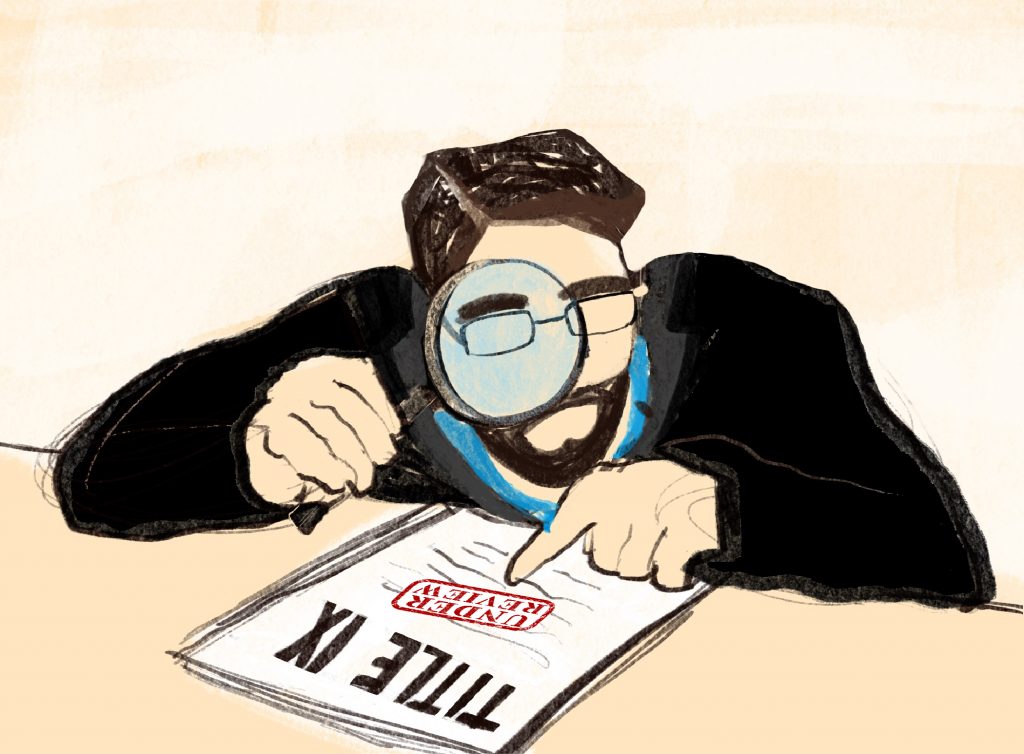As Binghamton University attempts to address sexual violence on campus, national legal firm Husch Blackwell seeks to discover the opinions of campus administration and students about new and existing Title IX campus resources and policies.
On Sept. 30, BU President Harvey Stenger announced the legal firm Husch Blackwell as the third-party consultant that will review the University’s new and existing practices and programs regarding sexual violence and assault. The firm aims to make recommendations of changes to current BU Title IX programs and policies while looking into possible new programs to better address sexual violence on campus.
Based in Kansas City, Missouri, with 19 offices across the nation, the legal firm was hired by the University after the creation of @shareyourstorybing, an Instagram account that had over 886 posts shared as of Nov. 29. According to the Instagram account’s bio, the account serves as a medium for BU students who are survivors of sexual violence to anonymously share their stories and receive support. Following the research of eight to 10 potential legal firms with experience in reviewing college Title IX policies, the University chose Husch Blackwell, with the guidance of the SUNY administration, based upon the firm’s final hiring proposal.
According to Ryan Yarosh, senior director of media and public relations at BU, Husch Blackwell’s review will be conducted in multiple phases with plans for the final interview phase to be completed during winter break. During the first phase, which began at the start of the fall semester, the firm requested and reviewed sources relating to sexual violence cases on campus from University programs, policies and websites. Other sources of information included case file copies of complaints, hearings and investigations of possible survivors willing to be interviewed. Yarosh stated the firm is now starting a more personal investigative phase by inquiring into the opinions and experiences of BU individuals regarding sexual violence and the effectiveness of current BU resources and programs.
“The current phase of [Husch Blackwell’s] work involves interviewing professional staff, University leadership, students, student leadership, students active in programs related to Title IX, residential assistants and willing victims and respondents from case files they have reviewed,” Yarosh wrote in an email. “They will benchmark our programs, services and policies against other institutions, ensure we comply with state and federal law, assess the clarity of the roles of the various offices and our communications to students and provide feedback on the commitments the University has already made.”
Husch Blackwell declined to comment.
Abigail Cornelia, vice president of the Women’s Student Union (WSU) and a junior double-majoring in English and philosophy, politics and law (PPL), discussed WSU’s role in meeting with Stenger to discuss sexual violence at BU. In the meeting, WSU was informed that Husch Blackwell will be looking into the potential costs of implementing a violence and rape crisis center (VARCC) and will gauge campus administration and student opinions on the matter during the interview process.
Recently, WSU held workshops to inform students of the list of demands they made for the University. Some of the demands include a VARCC, the abolition of on-campus Greek life institutions, the hiring of 16 new sexual violence counselors and the firing of certain campus administrators, including current BU Title IX Coordinator Andrew Baker. The workshops also functioned as a way for students to learn how to better advocate the demands if they are approached by the firm for questioning. WSU plans to meet with Husch Blackwell in the coming weeks to discuss such demands.
While Cornelia believes the hiring of Husch Blackwell shows some responsiveness by Stenger, she said she feels the University’s response has been inadequate with their demands since the outpour of stories regarding sexual assault and violence over the summer on the @shareyourstorybing account.
“As for the steps the University is currently taking, these steps would not have been taken without an immense push by the student body as well as WSU, [Powerful United Ladies Striving to Elevate (PULSE)], @shareyourstorybing and any other organization that has released demands and statements in reference to sexual violence at [BU],” Cornelia wrote in an email. “The hiring of Husch Blackwell is an indication that the University is taking at least one of our demands, VARCC, seriously.”
Estee Sharabani, a sophomore majoring in business administration, is adamant about the creation of a VARCC and said the campus must uphold its obligation to serve the students.
“If the University is truly committed to preparing its students for successful lives and careers, it must make seeking help and justice as easy as it can be for victims,” Sharabani wrote in an email. “If [BU] is able to fund clubs and organizations that are committed to maximizing student and staff experience and well-being, they have enough funding to implement this health facility, as it is more essential than leisure and scholastic pursuits.”
Julia Kline, a sophomore majoring in environmental studies, shares Cornelia’s sentiment by stating that the University has done a poor job in aiding survivors of sexual violence.
“Over the summer hundreds of survivors told their stories through @shareyourstorybing on Instagram,” Kline said. “I don’t believe that the University took them seriously enough. The action taken by the University was simply not enough. In the future, I hope that they seek justice for more survivors and work more seriously with the organizations on campus to make sure that any form of sexual assault or harassment is not tolerated.”



